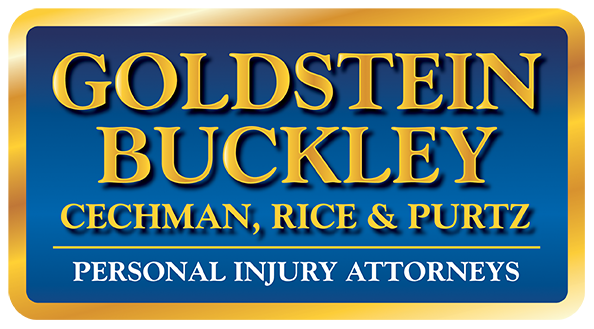Losing a loved one is an incredibly challenging experience, and when that loss is sudden and unexpected, it can be even more devastating. If you suspect that your loved one’s death was caused by someone else’s negligence or wrongful actions, you may be dealing with a wrongful death situation. In Florida, as in many other states, there are specific steps you should take to protect your rights and seek justice for your loved one. In this article, we will outline the essential steps to take if you suspect wrongful death in Florida and the requirements you should be aware of.
Step 1: Seek Medical Attention and Notify Authorities
In any sudden death situation, the first and most crucial step is to seek immediate medical attention if it’s not too late. If your loved one is still alive or there are survivors involved, it’s essential to call 911 or get them to a hospital as quickly as possible.
Simultaneously, you should notify the appropriate authorities about the situation. This may involve contacting the local police department, sheriff’s office, or even the Florida Highway Patrol if the death resulted from a car accident. Document the circumstances of the incident as accurately as possible.
Step 2: Consult with a Wrongful Death Attorney
After ensuring the immediate safety of survivors and notifying authorities, your next step should be to consult with a skilled wrongful death attorney. An experienced attorney will be able to guide you through the legal process and help you understand your rights and options.
Goldstein, Buckley, Cechman, Rice & Purtz, P.A is here to assist you during this difficult time. Our team of experienced attorneys specializes in wrongful death cases and can provide you with the legal guidance and support you need.
Step 3: Gather Evidence and Documentation
To establish a strong wrongful death case in Florida, you will need to gather evidence and documentation related to the incident. This may include:
- Medical Records: Obtain copies of your loved one’s medical records, including autopsy reports if available, to understand the cause of death and any contributing factors.
- Police Reports: Request a copy of the police report filed at the scene of the incident. This report may contain critical information about what happened.
- Witness Statements: If there were witnesses to the incident, collect their contact information and statements if possible. Witness testimony can be valuable in proving liability.
- Photographs and Videos: If you have photographs or videos of the scene, damages, or any relevant evidence, make sure to preserve them.
Step 4: Determine the Responsible Party
Identifying the party responsible for your loved one’s wrongful death is a crucial step. In Florida, wrongful death claims can arise from various situations, including car accidents, medical malpractice, premises liability, product liability, and more. Your attorney will help you investigate the circumstances surrounding the death to determine who may be liable.
Step 5: File a Wrongful Death Lawsuit
If your attorney determines that you have a valid wrongful death claim, they will assist you in filing a lawsuit against the responsible party or parties. In Florida, the personal representative of the deceased person’s estate typically brings the lawsuit on behalf of the surviving family members.
Step 6: Damages and Compensation
In a wrongful death case, you may be eligible for compensation for various damages, including:
- Medical expenses: Any medical bills related to the final injury or illness of the deceased.
- Funeral and burial expenses: Costs associated with the funeral and burial of your loved one.
- Lost earnings: Compensation for the deceased’s potential future earnings that were lost due to their untimely death.
- Loss of companionship: Compensation for the emotional suffering and loss of companionship experienced by surviving family members.
- Pain and suffering: Compensation for the pain and suffering endured by the deceased before their death.
Step 7: Consult with Your Attorney Throughout the Process
Throughout the legal process, it’s crucial to maintain open communication with your attorney. They will keep you informed about the progress of your case, answer your questions, and provide guidance on any decisions you need to make.
Step 8: Settlement Negotiations or Trial
In many wrongful death cases, the responsible party or their insurance company may attempt to negotiate a settlement. Your attorney will advocate on your behalf during these negotiations to secure the best possible outcome. If a fair settlement cannot be reached, your case may proceed to trial, where a judge or jury will determine the outcome.
Requirements in Florida
Florida has specific legal requirements for filing a wrongful death lawsuit:
- Statute of Limitations: In Florida, you generally have two years from the date of the deceased’s death to file a wrongful death lawsuit. Failing to meet this deadline may result in your case being dismissed.
- Personal Representative: The personal representative of the deceased’s estate must initiate the wrongful death action. This representative is typically named in the deceased person’s will or appointed by the court.
- Surviving Family Members: In Florida, only specific surviving family members are eligible to recover damages in a wrongful death lawsuit. This typically includes spouses, children, parents, and other dependents.
- Proof of Negligence: To succeed in a wrongful death case, you must demonstrate that the defendant’s negligence or wrongful actions were responsible for the death.
Step 9: Emotional Support and Self-Care
Dealing with the loss of a loved one due to wrongful death is not only emotionally challenging but can also be physically and mentally draining. Throughout the legal process, it’s crucial to prioritize self-care and seek emotional support when needed. Lean on your friends and family for comfort, and consider joining a support group or speaking with a therapist to help you cope with the grief and stress.
Step 10: Remember Your Loved One
Amidst the legal proceedings, it’s essential to keep the memory of your loved one alive. Share stories, create memorials, and celebrate their life in meaningful ways. Honoring their memory can provide solace during the difficult times and help you focus on the positive impact they had on your life.
Dealing with a wrongful death is never easy, and navigating the legal process can be overwhelming. At Goldstein, Buckley, Cechman, Rice & Purtz, P.A, we understand the pain and grief you are experiencing and are committed to helping you seek justice for your loved one. Our experienced wrongful death attorneys are here to guide you through the process and fight for the compensation you deserve.
If you suspect wrongful death in Florida, don’t hesitate to reach out to us for a consultation. We will assess your case, explain your legal rights, and work tirelessly to achieve a favorable outcome on your behalf. Contact us today to schedule a consultation and take the first step towards justice for your loved one.
